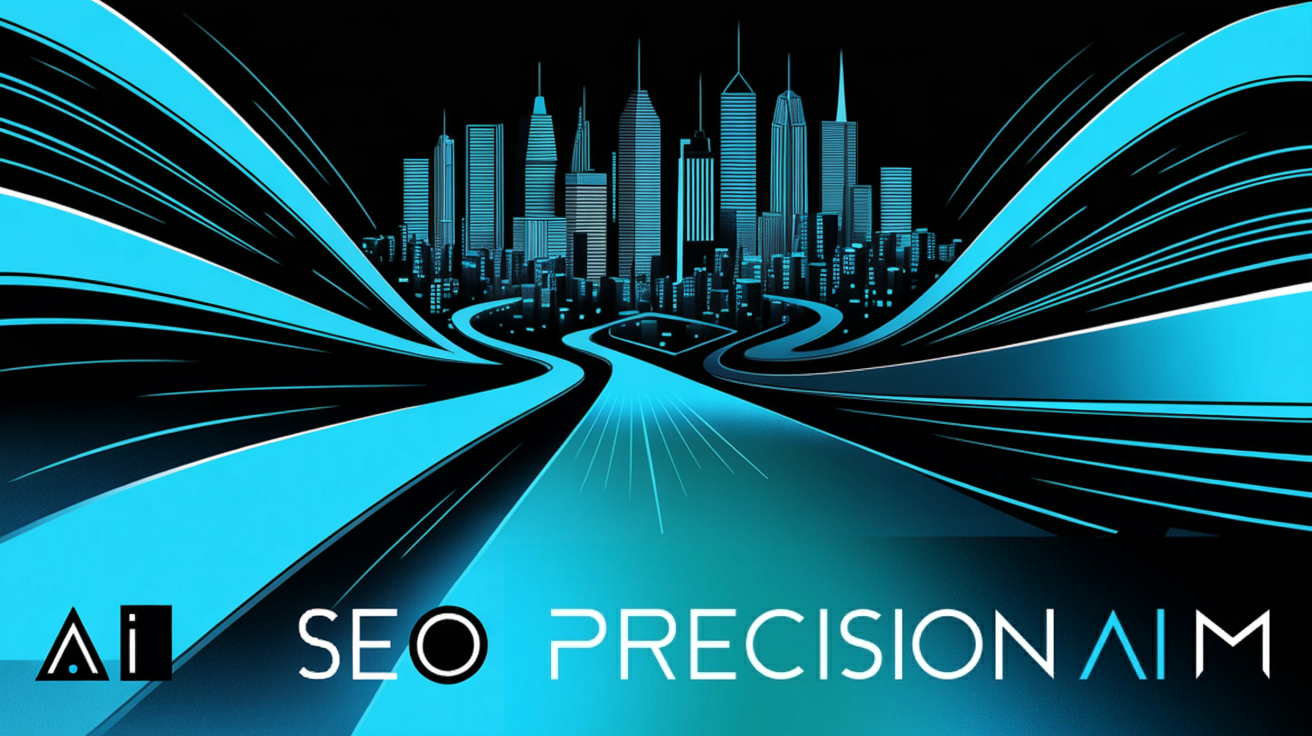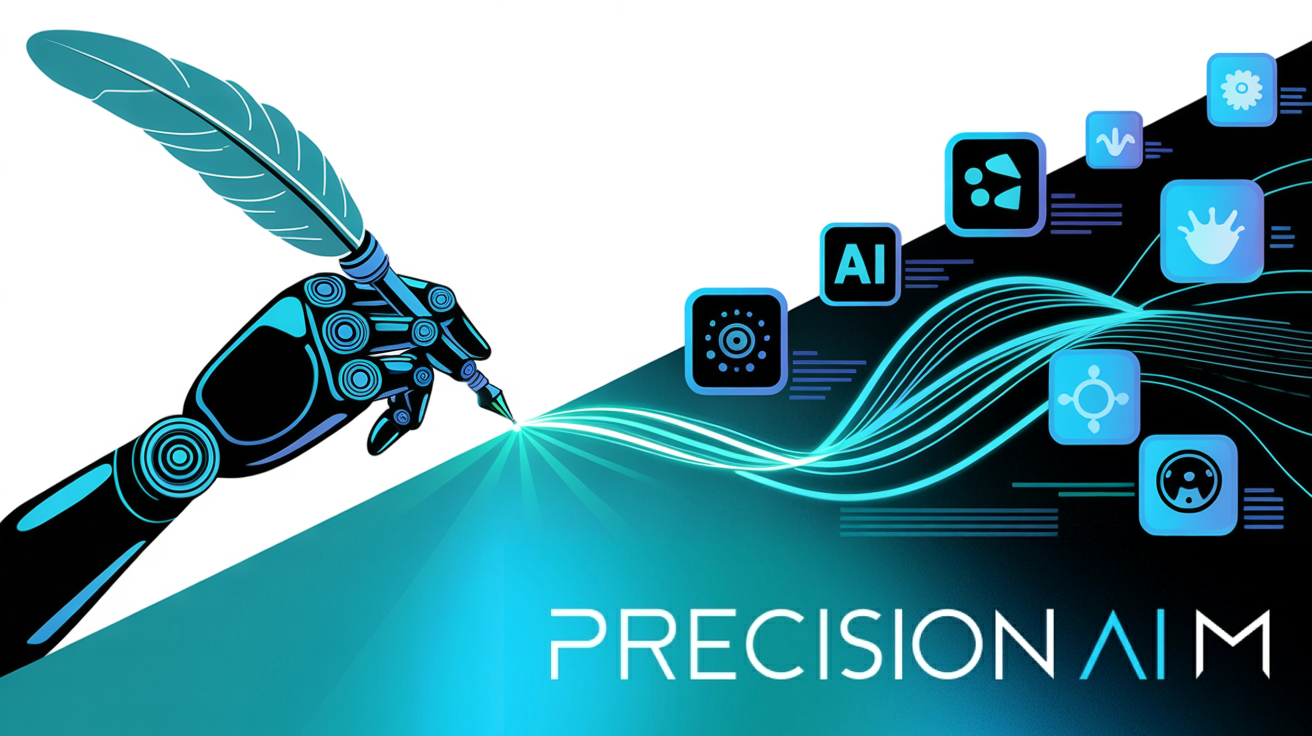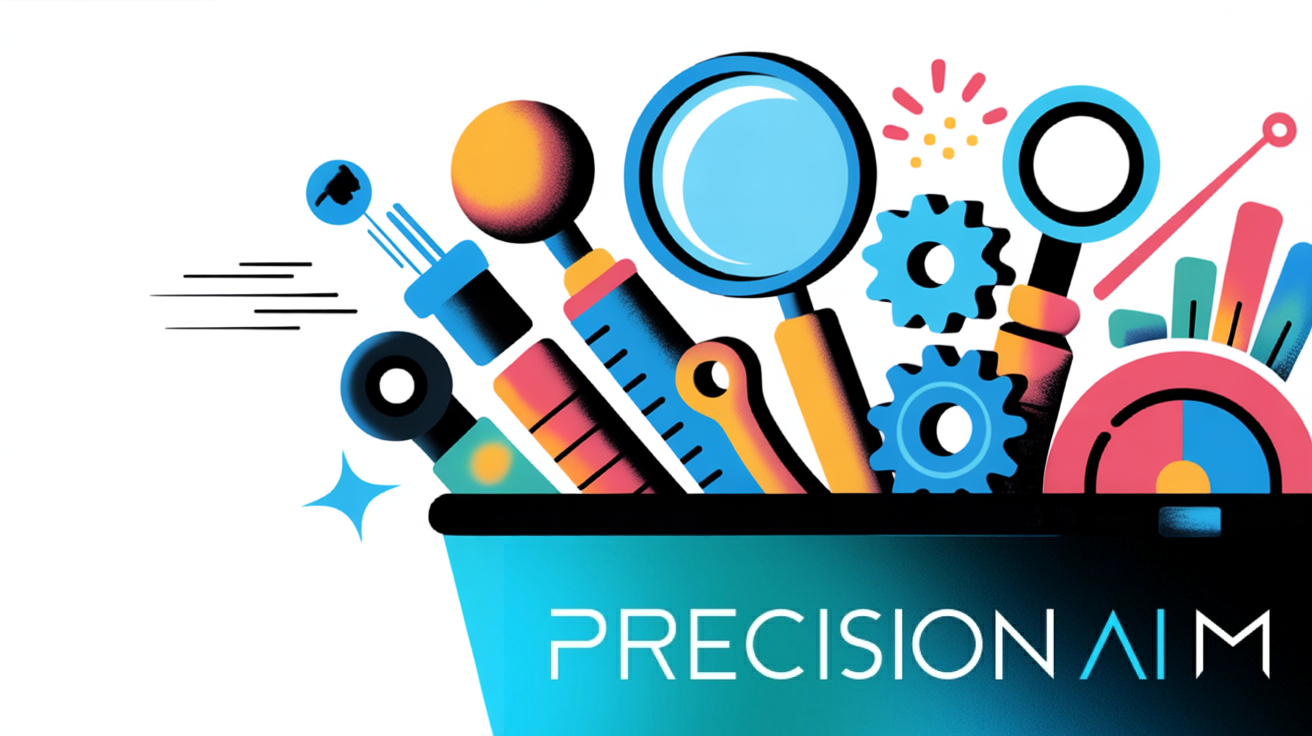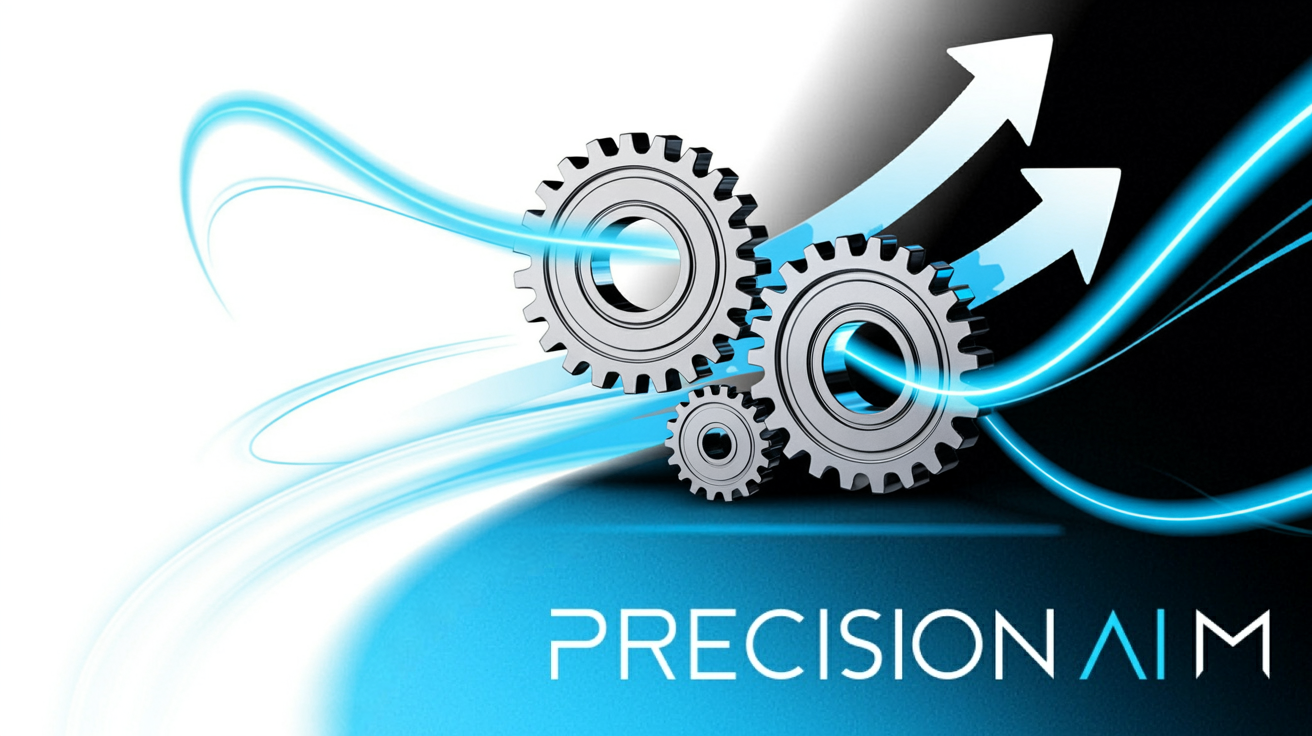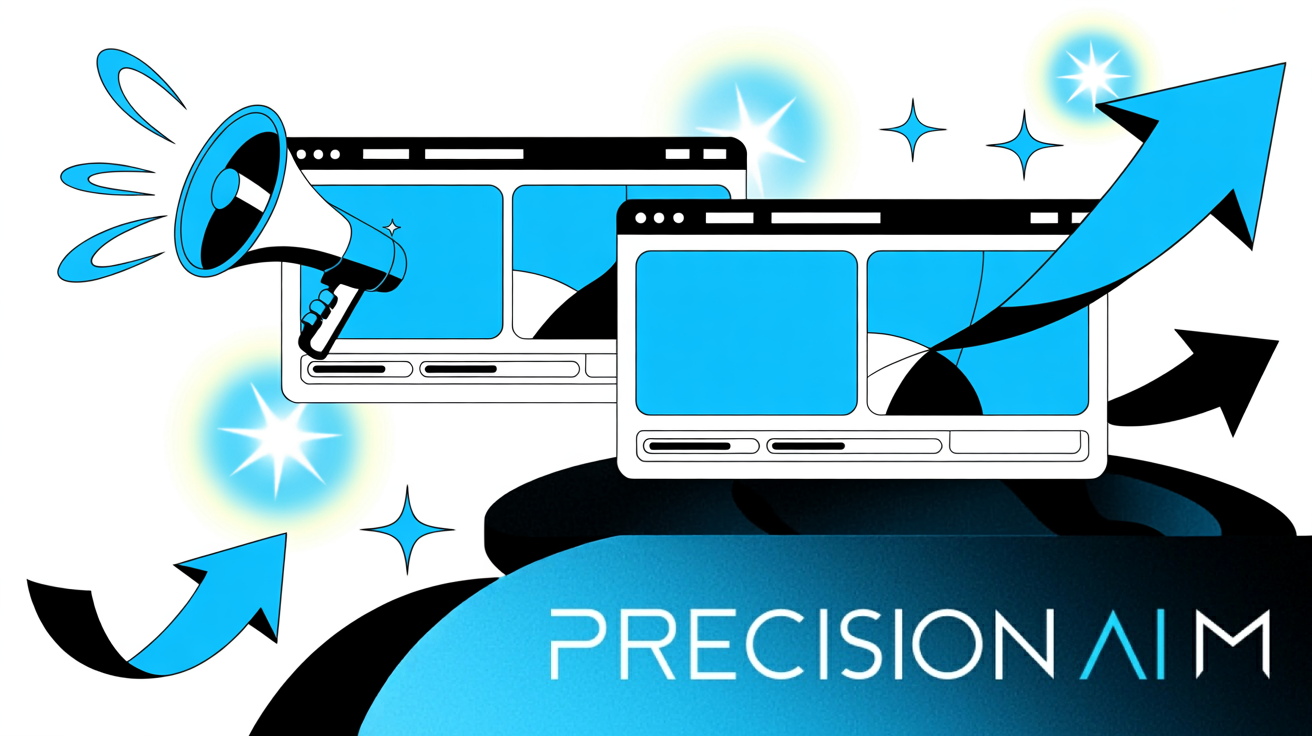Manual SEO tasks can slow teams down, especially when search algorithms and business needs shift almost overnight. I’ve seen how frustrating it is to juggle keyword research, technical audits, and content updates—only to fall behind competitors using smarter tools.
AI-powered SEO platforms now automate these repetitive jobs, freeing up your team for strategy and creative work. In this article, I’ll break down exactly how these tools deliver real-time research, instant technical fixes, and automated content creation.
You’ll see how leading solutions like SEOSwarm plug directly into agile workflows, enabling rapid site updates and bulk publishing without sacrificing quality. I’ll also compare top platforms, highlight measurable results, and share practical use cases for agencies, SMBs, and enterprise teams.
By the end, you’ll know what to look for in an AI SEO tool, how to measure ROI, and how automation can help your business adapt and grow—no matter how fast things change.
Understanding AI SEO Tools Scale Agile Solutions
Defining AI SEO tools
When people talk about AI SEO tools, they’re thinking of smart platforms powered by artificial intelligence—particularly machine learning and natural language processing (NLP). These systems go far beyond mere upgrades, genuinely reinventing how SEO teams operate.
Remember those long days of painstaking manual keyword research and slow website audits? Now, AI handles these tasks instantly, freeing your team to focus on bigger strategic moves. That shift is a game-changer.
A core component of a modern, AI-powered SEO strategy involves integrating specialized tools directly into the workflow to automate routine processes, thereby freeing up human expertise for more complex strategic planning.
So, what makes these tools so effective? They crunch immense amounts of data, uncovering trends and opportunities at a pace no human can match. Creating strategic keyword lists used to be tedious—now with AI, you instantly group keywords by topic, intent, and relevance for a clear competitive plan.
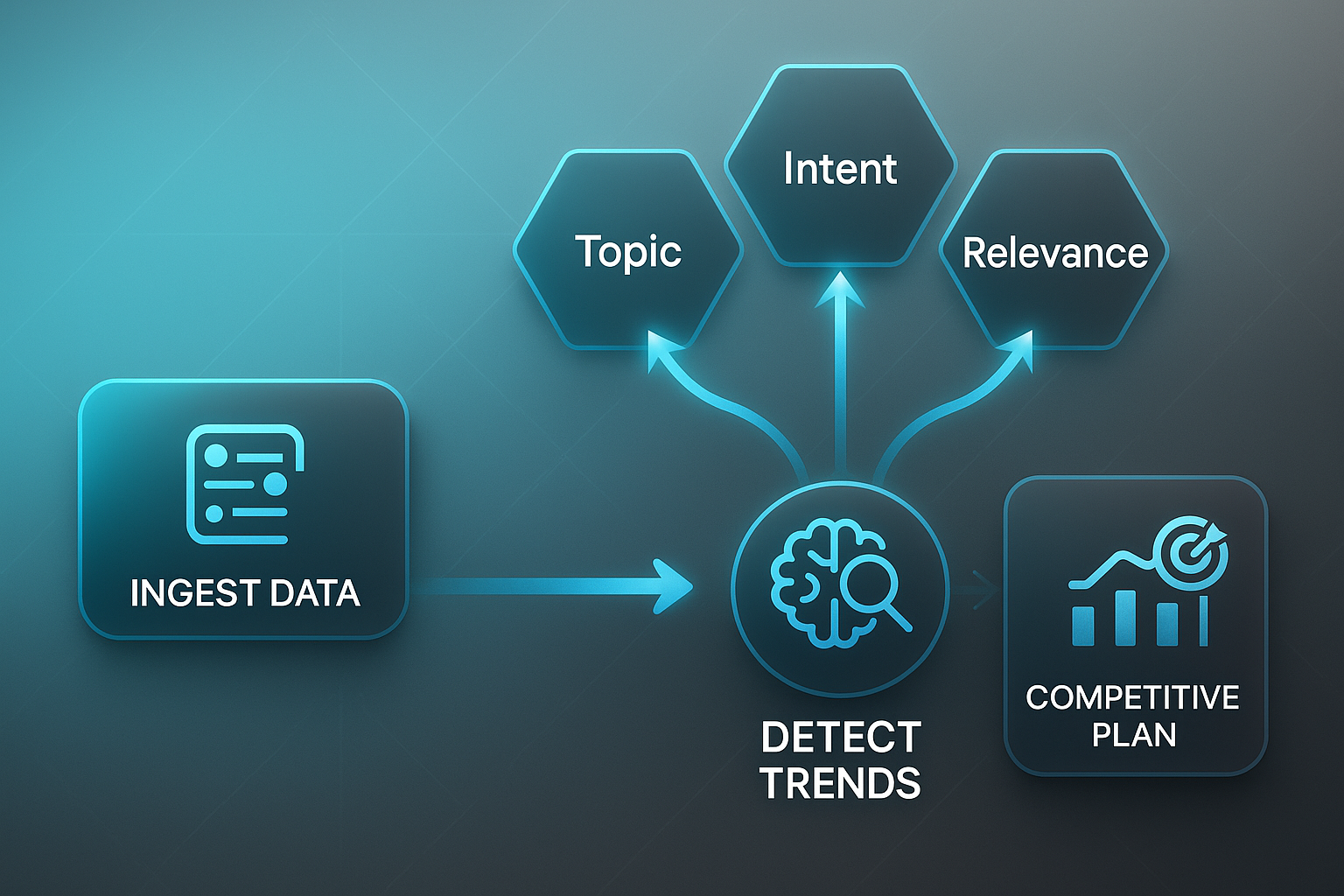
The story doesn’t stop there. The best AI SEO platforms perform thorough audits, finding broken links, missing metadata, sluggish pages, and technical issues all at once. And rather than just flagging problems, they suggest specific fixes, speeding up resolution.
Content creation also gets a boost. AI doesn’t just automate writing; it uses NLP to optimise and compare drafts with top competitors. The result? Pages that stand out to both search engines and actual people.
Critical functionalities of AI SEO tools
- Real-time research and trend analysis
Discover keyword and topic opportunities immediately as they appear. - Automated content writing
Generate web pages designed for SERP wins and real audience engagement. - Continuous technical SEO audits
Monitor site health automatically, catching issues early. - Automated schema markup deployment
Apply structured data for better search visibility with less effort. - Error detection and correction
Quickly identify and fix duplicates, crawl problems, and missing tags. - Internal linking automation
Build site architecture and pass authority automatically.
The impact? As repetitive work vanishes, your team’s capacity is force-multiplied. You can adapt rapidly and strategise with confidence. Sticking to manual methods now means falling behind.
Modern AI SEO tools combine predictive analytics, large language models, and seamless automation, covering everything from research to optimisation and monitoring—delivering results faster and smarter than ever before.
Automation and efficiency gains
Here’s the reality: AI SEO tools are revolutionising the way teams operate by slashing through the busywork and bringing unprecedented speed to search marketing. Those old, painstaking hours spent on keyword research or technical audits? Machine learning now steps in, clearing those tasks in mere minutes—or less.
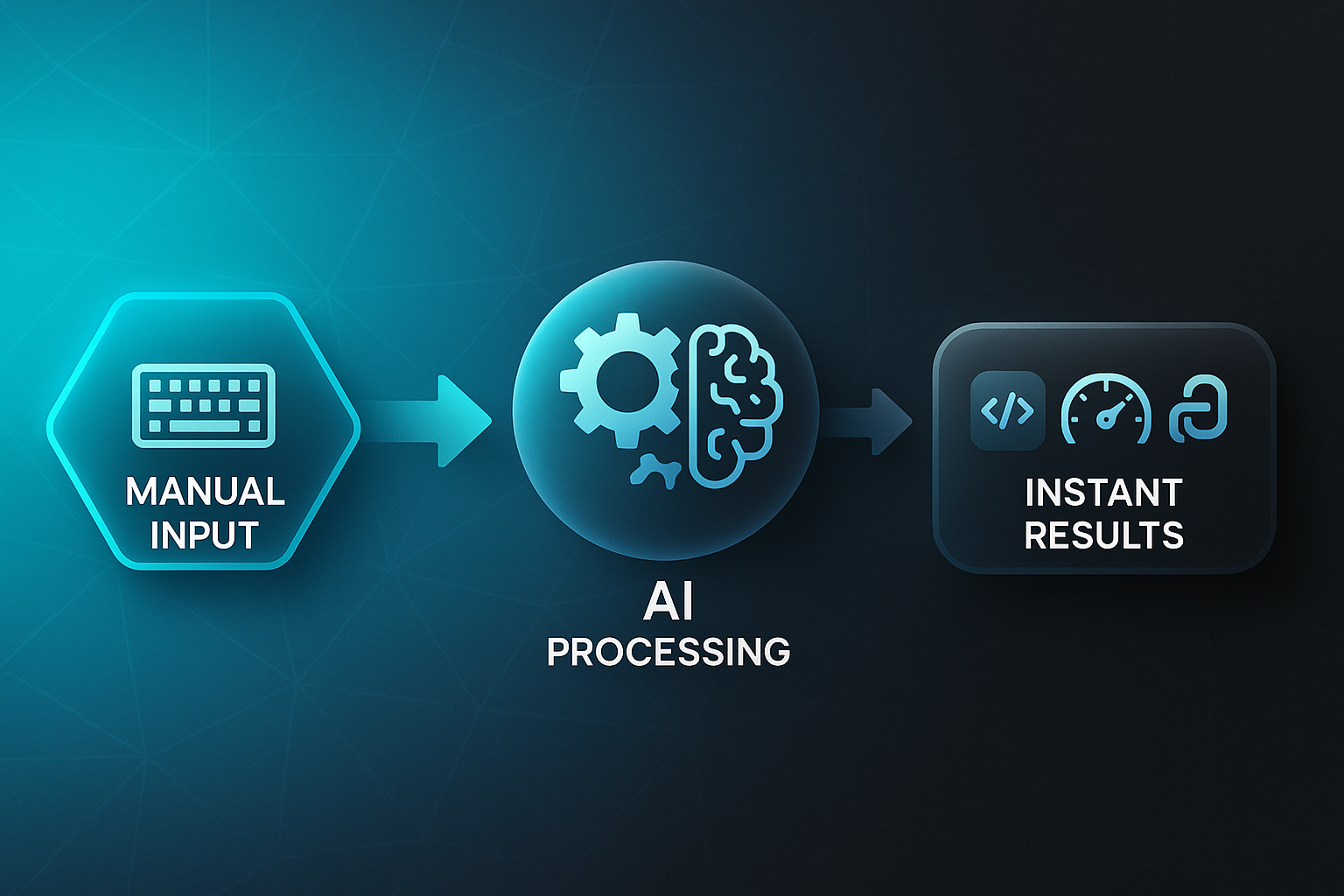
These platforms don’t just observe trends—they actively generate up-to-the-minute keyword lists and find technical faults in real time. They offer instant optimisations, nudging your meta tags or fixing sluggish load speeds right when you need it.
But that’s only the start. When a site hits a snag—be it broken links, duplicate content, or missing schema—AI routines jump to attention. They’ll auto-correct many of these issues long before your team even spots them, preventing costly slips in search visibility.
Measurable labour savings
Here’s where it really gets interesting. Recent studies show up to 75% of routine SEO tasks—like keyword grouping, technical auditing, and meta-tag creation—now run on autopilot for teams embracing AI.
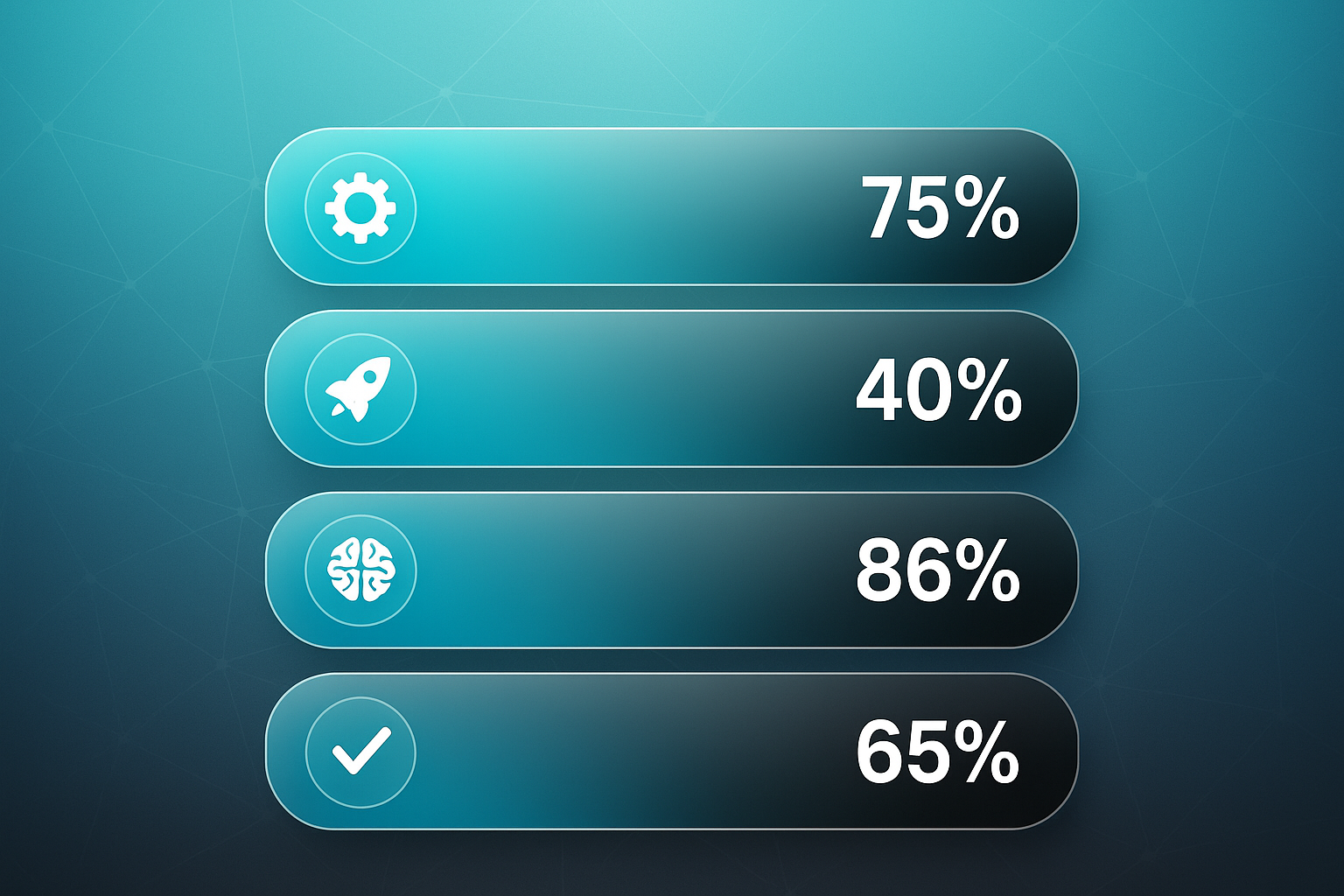
This leap isn’t just about speed; it lets SEO professionals focus on big-picture strategy instead of repetitive tasks. For example, moving to AI-driven workflows means a 40% reduction in content production time, and get this—86% of SEO specialists now use at least one AI solution.
Artificial intelligence has arrived in the workplace and has the potential to be as transformative as the steam engine was to the 19th-century Industrial Revolution.
And the results? 65% of these businesses see improved search outcomes, especially in on-page SEO and technical health. That’s a seismic change.
Driving true agile workflows
But what about agility? That’s where things get transformative. Agile working thrives on rapid turnaround and eliminating bottlenecks. With AI firmly embedded, urgent site changes don’t drag on—they’re rolled out in just one sprint, not stuck in limbo for weeks.
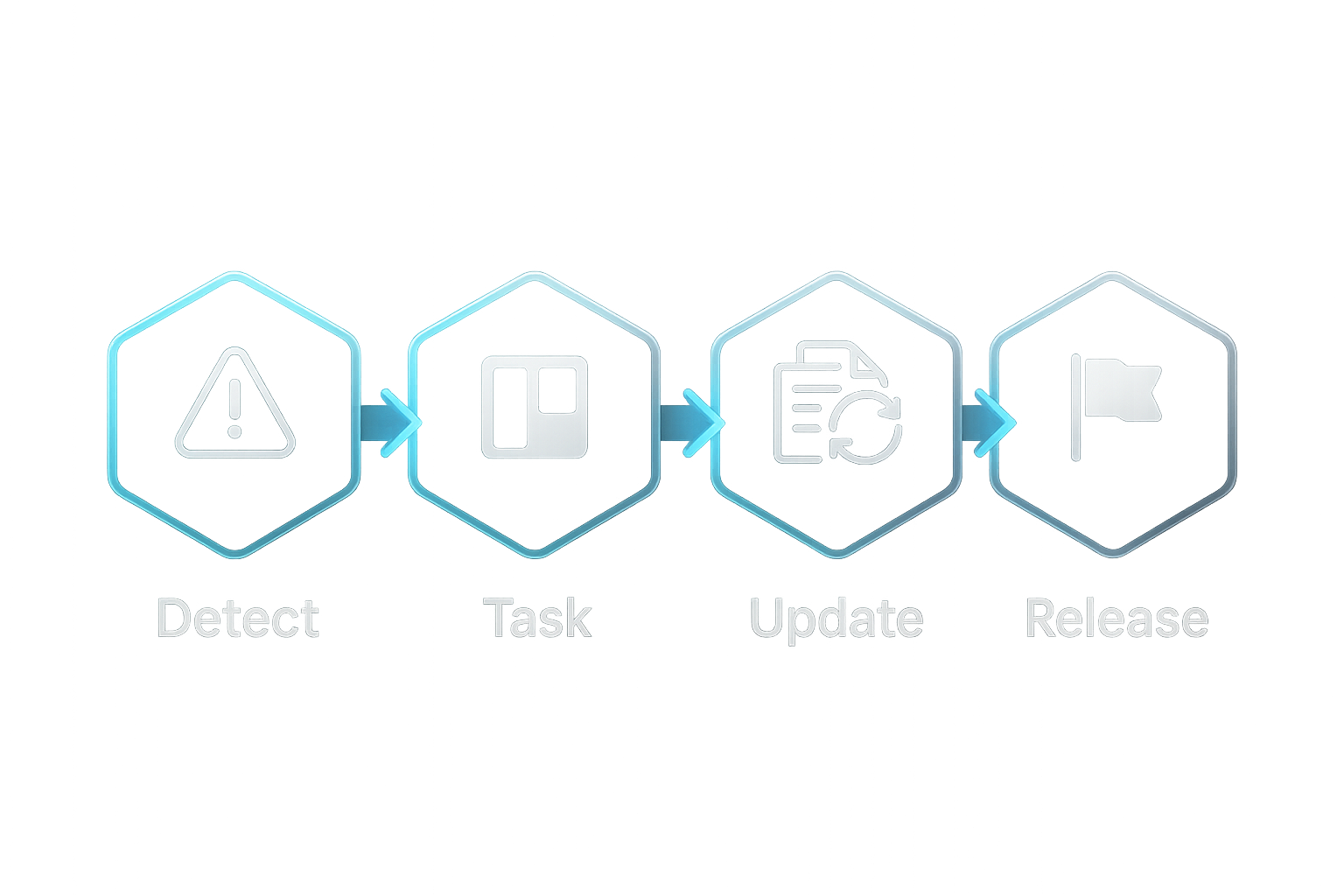
Take SEOSwarm for example. It plugs straight into agile backlogs, quickly pointing out areas for improvement and syncing tasks across departments. The platform then rolls out bulk updates, making teamwork seamless even when you’re juggling multiple brands.
If your digital estate is sprawling, this kind of orchestrated automation is the crucial difference between keeping up and getting left behind.
Quantifiable boosts from automation
Let’s talk numbers. SaaS firms harnessing AI-driven content planning have seen a 65% uptick in first-page rankings, while organic traffic has jumped by 45%—all in just a few months.
The time to publish an optimised page plummets by up to 45%. Manual routine SEO work is cut by over 60%. That means ideas become live improvements almost overnight, not weeks later.
You can adapt instantly to shifts in search algorithms or your market, a massive edge in fast-changing landscapes.
AI SEO in the modern toolkit
It’s now standard for teams to weave AI into their day-to-day work. Platforms like SEOSwarm, SEMrush, Ahrefs, and Surfer SEO are routine choices for automating keyword tracking, audits, and performance checks.
What sets SEOSwarm apart is its ability to fit right into agile workflows, prioritising fixes and rolling out content to hundreds—or even thousands—of pages at once. If your business depends on rapidly-shifting or broad portfolios, this scale and responsiveness are absolutely indispensable.
In short, by erasing manual bottlenecks, AI SEO automation enables teams to innovate, adapt, and deliver results at a pace that was once impossible. Agile marketers can now achieve more with less, keeping their strategies just a step ahead of the rest.
Core pain points addressed by advanced AI SEO and agile tools
Keeping pace with frequent algorithm changes
Search engine algorithms aren’t just evolving—they’re in a near-constant state of change. For SEO teams, that means waking up, finding out that Google has moved the goalposts again, and suddenly watching rankings slip away. The pressure to keep up is relentless, and for organisations invested in digital visibility, this volatility can feel like chasing a moving target.
Here’s the thing: advanced AI SEO tools step in as a lifeline. Instead of waiting for periodic audits or panicking after a big drop, these tools provide real-time anomaly alerts and continuous site monitoring. You discover issues as they arise, not weeks later—allowing courses to be corrected before minor blips become major crises.
Imagine running a site audit only a few times a year. Now, platforms like SE Ranking deploy machine learning anomaly detection across your rankings and live SERP data. When the algorithm shifts, these smart systems send early warnings, flagging important changes even before industry news breaks.
But it gets even better. Agentic (autonomous) AI platforms act as tireless analysts, scanning oceans of data to catch trends and simulate the effects of proposed changes. Considering an overhaul of your service pages? The AI predicts the likely impact based on current ranking signals, offering actionable advice before you commit.
That’s not all. These agentic solutions also automate competitor tracking, run ongoing technical health checks, and surface new SEO opportunities your team may miss manually. They help shift from reactive panic to a proactive, anticipatory approach.
For a practical real-world example: a top SaaS firm integrated advanced anomaly detection just in time for a core Google update. Their team received warnings about EEAT ranking shifts weeks in advance, letting them adapt. Meanwhile, competitors tied to manual-only processes lost up to 40% of their organic traffic during the same period.
Specialist tools make this transition even smoother. Millimetric.ai delivers instant alerts for traffic and ranking changes, enabling teams to respond before problems snowball. Chatsonic powers ongoing keyword and content optimisation, keeping strategies aligned with shifting SERP trends.
Here’s the difference: old-school manual workflows rely on periodic audits and endless spreadsheets. In contrast, agentic AI cuts through data noise, highlighting genuine risks or opportunities immediately. This agile approach preserves resilience, boosts competitiveness, and keeps your digital presence strong—even when the search environment gets turbulent.
How SEOSwarm uniquely solves challenges and scales quality
Instant blog deployment and accessibility
SEOSwarm’s strongest suit? Speed without sacrificing quality. The platform automates blog creation entirely, transforming fresh ideas into published, optimised pages in under a minute.
Instead of slow, complex workflows spanning writers, developers, and SEO specialists, agentic AI takes care of everything—sourcing keywords, clustering topics, drafting the copy, embedding links, adding schema, and publishing directly. It’s genuinely hands-free.
Accessibility is another advantage. There’s no daunting upfront fee; SEOSwarm’s subscription pricing delivers automation for agencies, SMBs, and multi-site enterprises alike. Onboarding is simple too—install a code snippet and you’re ready to go.
End-to-end agentic automation
What really marks SEOSwarm apart is its specialised AI agents for each SEO task, replacing any need for rigid templates. These agents handle research, strategy, content creation, publishing, and ongoing maintenance in a cohesive way.
They adapt swiftly, learning from yours and competitors’ performance data. When Google tweaks an algorithm, SEOSwarm reacts instantly, adjusting both content and link structures behind the scenes.
Repetitive chores—keyword grouping, schema validation, repairing internal links—simply disappear, meaning your team can focus on high-level strategy while the platform auto-refines your web presence.
Quality-centred optimisation and engagement
Quality sits at the heart of everything. SEOSwarm’s agents track EEAT (Expertise, Experience, Authoritativeness, Trustworthiness), integrating author profiles, citations, and accuracy markers.
Schema markup is auto-generated for featured snippet eligibility and richer results. Internal and external link equity is actively built and maintained, safeguarding technical SEO health.
Each blog comes equipped with calls-to-action, brand-aligned media, and conversion-focused features—helping drive engagement and compliance alongside visibility.
Seamless integration and continuous improvement
Agility matters. That’s why SEOSwarm integrates with your workflows via API, publishing instantly to any domain you control.
Built-in analytics provide real-time insights on rankings and user interaction. AI agents use these metrics to refine future campaigns and page structures with every update.
Algorithm changes? Agents actively monitor, helping your site adapt rapidly. Every tweak is tracked for auditing and smarter decision-making.
Fit for agencies, SMBs, and enterprise scale
Whether you manage a few sites or a global portfolio, SEOSwarm’s architecture delivers. Agencies oversee dozens or hundreds of properties efficiently, while SMBs benefit from ready-to-launch deployment and affordable tiers.
Transparent reporting lets you monitor ROI, track improvements, and respond quickly when the competition shifts. Whether onboarding new clients fast or maintaining standout content standards, SEOSwarm gives you the tools to optimise and scale SEO—without ever compromising on excellence.

AI-Powered Content Strategy
See the AI platform that's replacing entire content teams (with better results).
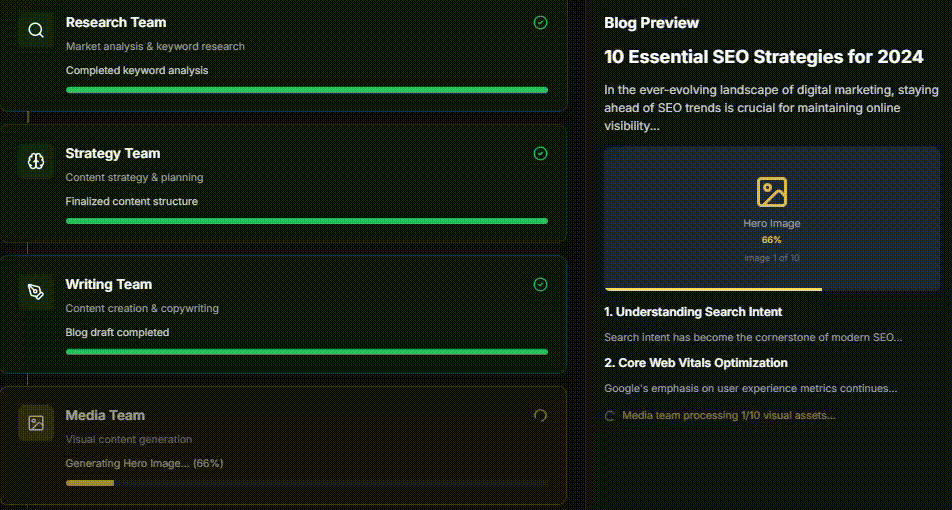
Evaluating and selecting the best AI SEO tools for agile marketing
Choosing an AI SEO platform isn’t a box-ticking exercise—it’s about equipping your marketing team to truly embrace agile speed. The right solution will wipe out repetitive work, blend into your sprints, and scale up quality as you grow.
Key criteria for selecting AI SEO tools
Let’s get straight to the must-haves for agile SEO platforms:
- Full workflow automation
Manages keyword research, content creation, optimisation, and publishing—hands-free. - Quality assurance and SEO compliance
Monitors EEAT, schema, and robust internal linking without extra effort. - Agile compatibility
Integrates with tools like Jira or Trello for streamlined sprint management. - Scalability
Supports bulk publishing, multi-site oversight, and role-based analytics. - Reporting and analytics
Delivers real-time insights at granular, sprint-by-sprint levels. - Cost-effectiveness
Automation power and pricing that fit evolving business needs.
Tick these boxes, and your team can skip rote SEO tasks and put creativity and strategy centre stage.
Comparing SEOSwarm to other leading platforms
So, how does the landscape really look when top tools go head-to-head?
- SEOSwarm
End-to-end automation, direct agile integration, and unified reporting—suitable for any scale. - SurferSEO
Great for optimisation, but you’ll still draft, publish, and track manually. - SEMrush
Leading for research, but content and workflow automation fall short. - MarketMuse
Superb planning tools, yet execution bottlenecks appear due to manual steps. - Clearscope
In-depth guidance but no deployment automation or agile sync. - Moz Pro
Excellent audits and link data, lacking in content creation efficiency. - Ahrefs
Unsurpassed competitor and backlink data—no true workflow automation. - ContentKing
Live site monitoring excels, but no integrated agile or content features.
Real-world sprint scenario: SEOSwarm versus the rest
Imagine launching 15 blogs in a sprint. SEOSwarm automates the whole flow—creation, optimisation, publishing, and reporting—keeping everyone in rhythm. But with SurferSEO, you’re drafting, optimising, then manually uploading and tracking, which disrupts agile momentum. With SEMrush, research is smooth but execution means hopping between platforms—momentum lost.
Feature and workflow comparison
| Platform | Automation | Agile Integration | Speed | Maintenance | Reporting | Flexibility |
|---|---|---|---|---|---|---|
| SEOSwarm | Yes | Built-in | High | Yes | Unified | High |
| SurferSEO | Partial | Manual | Medium | No | Split | Moderate |
| SEMrush | No | Manual | Medium | No | Split | Tiered |
| MarketMuse | No | Manual | Low | No | Split | Flexible |
| Clearscope | No | None | Low | No | Split | Flexible |
| Moz Pro | No | None | Low | No | Split | Moderate |
| Ahrefs | No | None | Low | No | Split | Tiered |
| ContentKing | No | None | Low | Yes | Split | Tiered |
Common limitations in leading platforms
- Workflow silos
Manual handovers sap speed and disrupt collaboration. - No native agile integration
Project tracker syncing is often missing. - Limited ongoing optimisation
Manual updates are still required. - Manual quality checks
Validation is rarely fully automated. - Restrictive pricing
Advanced automation comes at a premium.
Agile teams need end-to-end automation for true speed and consistency. That’s where SEOSwarm becomes the turning point—removing friction and empowering marketing to move in step with every sprint.
Real-world applications and use cases
Agencies rapidly launching multi-client blogs
Managing multiple brands at speed is a real test for agencies. With AI-powered platforms like SEOSwarm, timelines that once stretched to weeks now shrink to hours—thanks to automated research and bulk blog deployment working in tandem.
Picture quadrupling your blog output without hiring a single extra writer. This sort of shift means onboarding clients far more quickly and boosting retention, because ranking improvements appear visibly faster than ever.
SMBs scaling blog output and sustaining ranking
Small and medium-sized businesses always need to do more with less. That’s exactly where AI SEO tools step in—allowing lean teams to double their monthly blog count, all while maintaining high standards and without the pain of extra hires.
One UK-based SMB achieved just that, watching traffic rise and engagement soar. It’s proof that smart scaling generates genuine, measurable outcomes.
Local SEO and e-commerce campaigns
Local businesses and busy online retailers have their own set of optimisation hurdles. AI-driven solutions take care of schema, internal links, and UX heatmaps automatically, so visibility and conversion both get a boost.
How big is this impact? A regional retailer recorded a 28% increase in click-through rates. And with speedier page loads, they saw both online sales and shop visits climb.
Enterprise-level iterative testing and conversion optimisation
Large enterprises are all about agility on a grand scale. AI SEO platforms let them test landing pages and calls-to-action every week, so improvement never stops.
Recent enterprise rollouts brought a 15% rise in organic click-throughs and better product trial conversions. Sometimes, a few small tweaks make a dramatic difference.
Measuring ROI and business growth via continuous optimisation
Companies now monitor their SEO impact with real-time analytics—tracking new rankings, rising traffic, and amplified client lifetime value.
A suite of case studies shows organic revenue climbing over 40% in just twelve months. Continuous agentic optimisation transforms SEO investment into true business growth, making every campaign count just that little bit more.
Innovations, trends, and future-readiness in AI SEO and agile marketing
Real-time integration and dynamic SERP targeting
Imagine your SEO platform plugged directly into Google Search Console. You get instant insights and automated alerts the second rankings shift. That means teams react in real time, never missing sudden changes. AI optimisation also structures content to chase featured snippets and “People Also Ask” boxes, giving you a serious visibility advantage.
Businesses using these approaches see up to 30% greater SERP feature visibility and stronger click-through rates. The impact is both measurable and immediate.
Scaling local SEO and non-technical team enablement
Automation now manages multi-location keywords, citation building, and review replies—no technical expertise required. With user-friendly low-code tools and visual heatmaps, any team member spots local ranking gaps and launches campaigns at speed. Retailers have boosted local pack rankings 30% faster, while shop visits jump by up to 50% thanks to AI-driven efficiency.
Explainable AI for transparent optimisation
Ever asked why your rankings changed? Advanced platforms log every step, offering complete clarity and rationale. Transparency nurtures trust, streamlines sprints, and keeps teams aligned with Google’s E-E-A-T guidelines. Companies embracing explainable AI report easier reviews and improved collaboration.
Integrating UX/CRO for performance gains
AI SEO now weaves in automated A/B testing and heatmap insights—tuning for both ranking and conversions. Organisations often see conversion rates up 10–18% thanks to this joined-up approach.
Continuous updates, modular capabilities, and future-proofing
Modern AI SEO is modular, adding optimisation features as search evolves. Automated EEAT audits and site maintenance enable swift adaptation, sustaining rankings and organic growth. Enterprises and SMBs credit these future-ready innovations with keeping them ahead, minimising downtime, and driving results.
Measuring Success: Key Metrics, ROI, and Continuous Improvement
Data-Driven Measurement in Agile SEO
Let’s get real—if you want SEO strategies to stick, you need clear, actionable results. Gone are the days of hoping vague graphs would convince leadership. Agile teams now use real-time metrics to substantiate every sprint and campaign.
Metrics like organic traffic trends, keyword portfolio growth, conversion rate, bounce rate (the number leaving after one page), page speed, and cost per acquisition (CPA) form the backbone of every SEO review. If you’re wondering how all these numbers tie together—it’s through continuous benchmarking in your agile sprints.
Every sprint ends with a review; not just to celebrate wins, but to dissect what worked and what missed the mark. That feedback loop is what keeps teams sharp and responsive, letting them adjust tactics before competitors even spot shifts.
The magic of modern AI solutions—think SEOSwarm—is that all these KPIs live in one transparent dashboard. Instant clarity means you see high-performing pages, slow sections, and urgent technical issues as they happen. No more waiting weeks for dusty audit reports.
Metrics That Matter Most
Which metrics really move the needle for business growth? Organic rankings and traffic are the usual heavyweights, but engagement and conversion rate are where true value shows up. Technical health, from site speed to error tracking, underpins them all.
Core SEO Metrics
- Organic Traffic
Tells you who’s landing on your site from search engines. - Keyword Ranking
Shows how your target keywords perform in SERPs. - Bounce Rate
Measures how quickly visitors leave after just one page. - Conversions & CPA
Tracks actions like sign-ups, purchases, and acquisition costs. - Page Speed
Reveals how fast your site loads—a ranking and user experience must.
Calculating ROI and Resource Efficiency
AI-powered platforms don’t just elevate results—they dramatically rework resourcing. Manual tasks fade, so teams can prioritise big-impact activity. Results are tangible, with SEOSwarm users seeing a 40% drop in manual labour and 70% faster content launches.
This means managers can continuously shift investment to the most effective tactics. Monitoring ROI monthly becomes effortless—data is always at your fingertips.
Building for Long-Term Impact
The real win is turning improvement into a habit. Every sprint, teams ask what moved the dial, then hard-wire those lessons into future workflows. Experimentation, via A/B tests and “micro pilot” campaigns, becomes second nature.
Agentic platforms like SEOSwarm make these cycles seamless, with built-in reporting and optimisation. The upshot? Teams don’t just keep up—they start to lead, learning and evolving faster than the search landscape itself.
Blog-in-one-minute
Add a fully SEO-optimised blog to your website with just 2 lines of code.
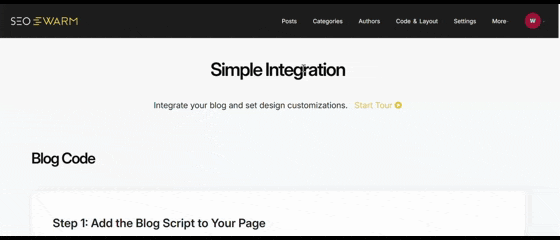
Making AI SEO Tools Scale Agile Solutions
Manual SEO is no longer a match for the pace of modern business. AI-powered tools now handle the grunt work—research, audits, and optimisation—so your team can focus on strategy and growth. The shift isn’t just about speed; it’s about freeing up creativity and making agile marketing truly possible.
If you’re serious about staying ahead, I recommend evaluating your current SEO workflows for automation gaps. Look for platforms that offer end-to-end automation, real-time analytics, and seamless integration with your agile sprints. Prioritise solutions that adapt as algorithms change and scale with your ambitions—don’t settle for tools that create new bottlenecks.
Here’s my advice: treat AI SEO as a living system. Review your metrics after every sprint, refine your approach, and let automation handle the heavy lifting. The businesses that thrive tomorrow will be those that learn, adapt, and act faster than their competitors—one sprint at a time.
— Wil
